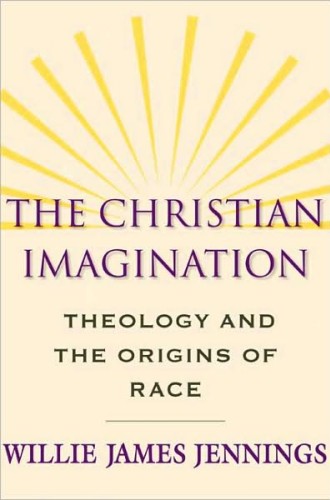Theology
Playing, by James H. Evans Jr. This small but substantial book appears in the series Christian Explorations of Daily Living, which includes volumes on shopping, working, parenting and other activities of daily life. Evans is attentive to African-American experience and literature in his trinitarian explorations of the importance of play in the Christian life. He sees playing as a practice that both subverts oppressive and suffocating forces and anticipates the full freedom and joy God has promised us.
Introducing the Qur'an: For Today's Reader, by John Kaltner. This is a readable, balanced introduction to the theology of the Qur'an. Kaltner covers themes such as creation, family, sexuality, religious pluralism, violence and war, and the afterlife. The text is accompanied by illustrations, and each chapter concludes with helpful study questions and a bibliography for further reading. It is an ideal adult study book for Christians wanting to go beyond misleading popular portrayals of Islam.
Spirit and Trauma: A Theology of Remaining, by Shelly Rambo. The past decade has seen increasing interest in what Christian theology has to say to those who have experienced trauma. Beginning with the stories of a military veteran and a survivor of Hurricane Katrina, Rambo draws on Hans Urs von Balthasar's rich reflections on Holy Saturday and on the theme of remaining, found in John's Gospel. The result is a theological acknowledgment of the reality of those who find themselves in a middle space where death remains and extends into the territory of life.
Nonviolence—A Brief History: The Warsaw Lectures, by John Howard Yoder. Though John Howard Yoder died over a decade ago, his publications continue to appear, thanks to the editing efforts of his friends and colleagues. This set of essays, originally presented as lectures in Warsaw, rehearses Yoder's familiar theme of the nonviolent politics of Jesus but also charts fascinating new directions. Yoder traces a trajectory of nonviolence through Tolstoy, Gandhi and Martin Luther King and also reflects hopefully on Catholic theological movements from Dorothy Day's Catholic Worker movement to liberation theology.
Reinhold Niebuhr: On Politics, Religion, and Christian Faith, by Richard Crouter. Crouter explores the theological significance of Reinhold Niebuhr, Obama's "favorite philosopher," for the United States of today. He argues that the political teaching of Niebuhr is inseparable from his Christian anthropology, which is rooted in Augustine and Kierkegaard. Crouter presents criticisms by Hauerwas and others but argues that Niebuhr's view of the fallible human condition remains worth pondering.
Justified in the Spirit: Creation, Redemption, and the Triune God, by Frank D. Macchia. The doctrine of justification has received much ecumenical attention in recent decades, and this volume in the new Pentecostal Manifestos series aims to bring Pentecostals into the conversation. Macchia argues that the role of the Holy Spirit has been underplayed in ecumenical reflection on justification and that the notion of Spirit baptism can link and anchor distinctive Protestant and Catholic understandings of the doctrine.
The Christian Imagination: Theology and the Origins of Race, by Willie James Jennings. This is a mournful book. According to Jennings, Western theology is afflicted with a diseased social imagination. The interweaving of colonialism and Western Christianity over the centuries has greatly impoverished our sense of deep belonging to each other as the body of Christ. We truly cannot imagine authentic Christian connection and intimacy across cultural and racial differences. According to Jennings, this poverty of desire continues to live inside Christian theology, and acknowledging this reality is the first step into a new ecclesial future.
Vulnerability and Glory: A Theological Account, by Kristine A. Culp. Vulnerability is often considered a negative dimension of human existence, but Culp defines it as our susceptibility to being changed, both for good and for ill, and as the creaturely condition in which persons and communities receive and bear the glory of God. Drawing on theological reflections from sources ranging from the apostle Paul to contemporary feminism, and with special attention to Reformed traditions, Culp charts a middle way between triumphalism and sectarianism, depicting Christian life as both affirming the grace and glory of God in the midst of our vulnerability and resisting powers of degradation and indignity.
The Difference Heaven Makes: Rehearing the Gospel as News, by Christopher Morse. Morse asks those who are tempted to dismiss the notion of heaven as up-in-the-sky mythology or afterlife escapism to instead let heaven unsettle and call into question their modern frame of reference. The real world is not the visible form of earthly life that is passing away, but rather the "at-hand-ness" of God working to redeem and save the world. This understanding of heaven as breaking into the present orients and motivates human moral action on earth now, in keeping with our hope for what will be.
The Theology of Food: Eating and the Eucharist, by Angel F. Méndez Montoya. Montoya, a Dominican friar, is both a theologian and a cook. In his "alimentary theology" he shares a recipe for molé and reflects on the Eucharist—God's offering hospitality by becoming our food and drink. Transformed by what we have eaten, we in turn respond to the hunger of others, creating a communal space of nurture and gratitude. Montoya's eucharistic theology opens into explorations of the problems of scarcity and overconsumption in Western society. Unfortunately, the price of the volume discourages a wide readership.















